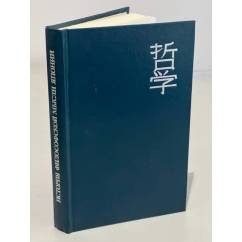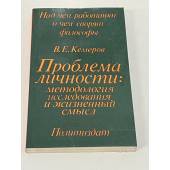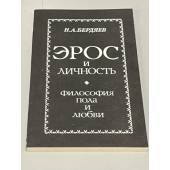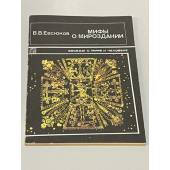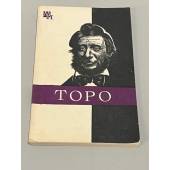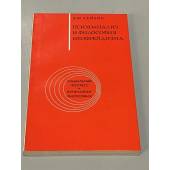
No products
Product successfully added to your shopping cart
There are %d items in your cart. There is 1 item in your cart.

Categories
- Albums (2075)
- Antique (before 1850) old books (before 1941) (582)
- Art and culture (5317)
- Audiobooks, compact discs (CD) (119)
- Autographed books (244)
- Board games (19)
- Books for school (4673)
-
Books in foreign languages
(8378)
- Books in Altai (4)
- Books in Azerbaijani (47)
- Books in Belarusian (46)
- Books in Bulgarian (2)
- Books in Dutch (2)
- Books in English (6542)
- Books in Estonian (10)
- Books in Finnish (7)
- Books in French (43)
- Books in Georgian (37)
- Books in Greek (2)
- Books in Hungarian (6)
- Books in Italian (12)
- Books in Japanese (7)
- Books in Karelian (3)
- Books in Kyrgyz language (6)
- Books in Latvian (46)
- Books in Lithuanian (7)
- Books in Norwegian (4)
- Books in Polish (14)
- Books in Portuguese (2)
- Books in Slovak (2)
- Books in Spanish (17)
- Books in Swedish (3)
- Books in Tajik (34)
- Books in the Adyghe language (3)
- Books in the Balkar language (8)
- Books in the Bashkir language (73)
- Books in the Buryat language (5)
- Books in the Kalmyk language (7)
- Books in the Karachai language (1)
- Books in the Komi language (5)
- Books in the languages of the peoples of the Caucasus (7)
- Books in the Mari language (17)
- Books in the Mokshan language (1)
- Books in the Mordovian language (3)
- Books in the Nogai language (1)
- Books in the Tatar language (101)
- Books in the Udmurt language (10)
- Books in the Yakut (Sakha) language (27)
- Books in the Yarzyan language (2)
- Books in Ukrainian (983)
- Books in Uzbek (9)
- Chuvash language books (29)
- Kazakh language books (8)
- Business. Economy (1624)
- Calendars (41)
-
Children's Literature
(10275)
- Books for parents (355)
-
Children's creativity and leisure
(903)
- Children's games. Experiments and experiments (15)
- Coloring pages (12)
- Crafts, cooking for children (6)
- Drawing for children (11)
- Make with your own hands (29)
- Modeling, application (7)
- Organization of children's parties (2)
- Origami, paper craft (5)
- Puzzles, crosswords for kids (7)
- Questionnaires, diaries, albums (1)
-
Educational and educational literature for children
(1705)
- Attention. Imagination. Memory (26)
- Basic security (4)
- Creative development (45)
- Foreign languages (101)
- General development. Manuals, reference books (82)
- General preparation for school (43)
- Introduction to the outside world (69)
- Logic. Thinking (30)
- Math and counting (42)
- Teaching reading and writing (89)
-
Educational literature for children
(768)
- Biographies for children (37)
- Books for boys (21)
- Books for girls (19)
- Culture, art, religion (48)
- Encyclopedias, reference books and other educational literature for children (180)
- History for children (86)
- Nature and the environment (242)
- Psychology. Etiquette (12)
- Science, technology, transport (54)
-
Fiction for children
(4301)
- Books for kids (111)
- Books on cartoons and films. Comics (81)
- Detectives and adventures for children (192)
- Foreign prose for children (304)
- Myths. Legends. Historical prose for children (66)
- Poetry for children (146)
- Russian prose for children (413)
- Science Fiction, Fantasy and Horror for Kids (116)
- Tales (498)
- Tales and stories about animals (143)
- Soviet children's books (893)
- Toy books (40)
- Collected works. Multivolume editions (3693)
- collection sets (50)
- Comics (53)
- Cookery (1363)
- Dictionaries. Phrasebooks (1318)
- Electronic books (10)
- Encyclopedia (1020)
- Engravings (7)
- Feng Shui (112)
- Fiction (84308)
- German and Germany (35723)
- gramophone records, vinyl (131)
- Guides (2053)
- Healthy lifestyle. Healthy eating. Fitness (1804)
- History (9770)
-
House. Life. Leisure.
(7703)
- Dom. Life (3171)
- Erotic books, books about sex, kamasutra (193)
- Hobby. Leisure (1651)
- Reference Literature (2188)
-
Sport
(951)
- Aerobics. Fitness. Yoga. Dancing (31)
- Board games (155)
- Combat and martial arts (81)
- Extreme sports (12)
- Gymnastics. Light and weightlifting (8)
- Olympic Games (13)
- Other sports (51)
- Physical culture and sport (72)
- Self-defense. Survival (20)
- Sport games (23)
- Tourism (85)
- Water sports (28)
- Winter sports (18)
- Kits (different books) (139)
- Kits (magazines) (60)
-
Magazines and newspapers
(2569)
- Architecture, interior (9)
- Astrology, esotericism (39)
- Bills (233)
- Calendars 2020 (1)
- Calendars 2021 (3)
- Cars, hunting, fishing (14)
- Celebrities, ZhZL (36)
- Children's magazines (11)
- Computer, technology (3)
- Cooking and Recipes (25)
- Crosswords, Scanwords (5)
- Editions with TV program (134)
- Entertainment magazines (7)
- Fashion, style, beauty (17)
- History (112)
- Hobbies, interests (106)
- Home, family, leisure (77)
- House, garden, vegetable garden (35)
- Literature, theatre, music (235)
- Magazines for men (210)
- Magazines for parents (2)
- Magazines for women (110)
- Medicine, health (155)
- Religion (10)
- Russian press abroad (484)
- Science, technology, fantasy (169)
- Sewing, knitting, needlework (8)
- Society, politics (636)
- Special Editions (58)
- Travel, countries (14)
- Maps, atlases (660)
- Military business. Weapons. Special services (4056)
- Miniature books (149)
- Music. Sheet music (1032)
- Postage stamps (92)
- Postcards (191)
- Posters (37)
-
Professional, educational literature
(24697)
-
Applied sciences. Technique
(2522)
- Agriculture. Veterinary medicine (40)
- Architecture (358)
- Chemical industry (104)
- Construction (445)
- Design (136)
- Energy (68)
- Engineering. Instrumentation (184)
- Food industry (19)
- Jewellery (22)
- Life safety (46)
- Light industry (39)
- Metallurgy (28)
- Mining (83)
- Nanotechnologies (5)
- Oil and gas industry (53)
- Other industries (101)
- Polygraphy (8)
- Radio engineering. Electronics. Communication (263)
- Technical Sciences (330)
- Technology of production (100)
- Timber and wood chemical industry (13)
- Transport (183)
-
Computer Literature
(469)
- Administration. Information security (4)
- Computer for … (16)
- Computer networks. Internet (23)
- Databases (8)
- Design systems (CAD/CAM) (1)
- General questions (41)
- Graphics, design, multimedia, games (27)
- Hardware (4)
- Informatics (27)
- MS Office. Microsoft office programs (11)
- Operating systems (12)
- PC work for beginners (18)
- Programming languages and environments (37)
- Humanities (8861)
-
Legal Literature
(1006)
- Civil law (54)
- Civil procedural law. Judiciary (8)
- Comments (12)
- Constitutional law. Administrative law (30)
- Criminal law (40)
- Criminology. Criminalistics (37)
- Customs law (8)
- Financial law (11)
- International law (34)
- Labor law. Social security law (9)
- Land law. Environmental law (3)
- Law enforcement agencies (23)
- Law in general. History and theory of state and law (30)
- Other branches of law (23)
- Regulatory acts. Reference literature (19)
- Right in everyday life (17)
- Textbooks and teaching aids (43)
- Workshops and practical aids (6)
-
Medicine and Health
(2433)
- Applied Medicine (41)
- Clinical Medicine. Internal Medicine (21)
- Cosmetology (20)
- Fundamentals of Medicine. Healthcare System (26)
- General pathology. General therapy (19)
- Narcology (12)
- Nervous system (29)
- Other branches of medicine (89)
- Pediatrics (52)
- Pharmacology. Toxicology (21)
- Popular and alternative medicine (1111)
- Psychiatry. Neuropathology. Sexopathology (71)
- Surgery (18)
- Monographs (1110)
- Natural sciences. Mathematics (2213)
- Social Sciences (5585)
-
Applied sciences. Technique
(2522)
- Religion. Esotericism (6356)
- Russian Abroad (books published abroad) (2590)
- Russian language (772)
- Russian language for children (Textbooks) (153)
- Soviet books until 1992 (12945)
- Yoga Books (159)
- Show All
More info
Nagata Hiroshi is one of the materialist philosophers of pre-war Japan. In this work, he reveals the features of the development of ideological thought in Japan during the Tokugawa era, identifies the specific features of Japanese Buddhism and Confucianism, critically analyzes the philosophical teachings of the greatest Japanese thinkers - Ito Jinsai, Ogyu Soraya, Ando Seeki, Miura Bayen, etc.
General editing and introductory article by Yu.B. Kozlovsky.
Contents.
To the Soviet reader (Mori Koichi)
From the author of the book.
Introduction. Characteristic features of Japanese philosophy and its development until the Tokugawa period.
Chapter 1. Changes in ideological life with the establishment of the "bakuhan" system ("military-feudal government - principalities").
- 1. Main features of the system " Bakuhan" during the Tokugawa period. 2. Changing the status of traditional ideological movements (Confucianism, Buddhism, Shintoism) under the “bakuhan” system. 3. The influence of social thought in Western countries. 4. General characteristics of Chinese Confucianism. 5. The emergence of the Japanese school of adherents of the teachings of Zhu Xi - Zen monks and Zhu Xianism - Fujiwara Seika and Hayashi Radzai.
Chapter 2. The rise of Confucianism during the period of stabilization of the "bakuhan" system.
- 1. The rise of Confucian schools. 2. The rise of the school of adherents of the teachings of Wang Yangming - Nakae Toju and Kumazawa Banzan. 3. Formation and development of the “kogakuha” school (school of “ancient science”) - Yamaga Soko and Ito Jinsai. 4. Dissemination of the teachings of adherents of Zhuxiism - Yamazaki Ansai, Kaibara Ekken, Muro Kyuso. 5. Arai Hakuseki. 6. Prerequisites for the emergence of the teachings of “fukko kokugaku” (“revived national science”), especially Keichu and Kada Azumamaro.
Chapter 3. The beginning of the process of decomposition of the feudal system and differentiation in ideological life.
- 1. Growth trade and usury capital and the stagnation of Confucian science, the emergence of a new worldview. 2. Soraya School. 3. The rise of the “national science” school. Kamo Mabuchi and Motoori Norinaga. 4. The emergence of the teaching of "shingaku". 5. Strengthening ideological currents directed against feudalism and the “bakuhan” system - Ando Seeki and supporters of the veneration of the emperor. 6. Signs of the decline of Confucianism - the eclectic school and the Osaka school. 7. The rapid rise of natural philosophy based on the progress of the natural sciences and the emergence of a new view of nature.
Chapter 4. The period of development of the conditions for the formation of a centralized state.
- 1. The development of destructive tendencies and their ideology. 2. Confucianism at the last stage. 3. Development of materialistic tendencies based on contacts with “Western science” (“egaku”). 4. Completion of the development of “revived Shintoism” (“fukko Shinto”). 5. The rise of the movement for the “expulsion of foreigners” and the worldview of its representatives. 6. The development of “Western science” (“egaku”) and the weakening of its influence on philosophy. 7. Sato Nobuhiro. 8. The ideological world during the Bakumatsu period (1853-1867).
Conclusion. The formation of ideological trends during the Meiji period.
Circulation 37,500 copies.
Data sheet
| ISBN | 5-01-001590-0 |
| Publisher | М.: Прогресс |
| Publication date | 1991 |
| Number of Pages | 413 |
| Bookbinding | твердый |
Same Products in Shop
| Name | Condition | Price | Company | Link |
|---|---|---|---|---|
| История философской мысли Японии | As New | 30,00 € | View Product |
All author\'s books:
Seller Info/Map |
Seller type: Company (business)
Подробнее
Meža prospekts 62 - 4
Jūrmala, LV-2010
Latvia
.








